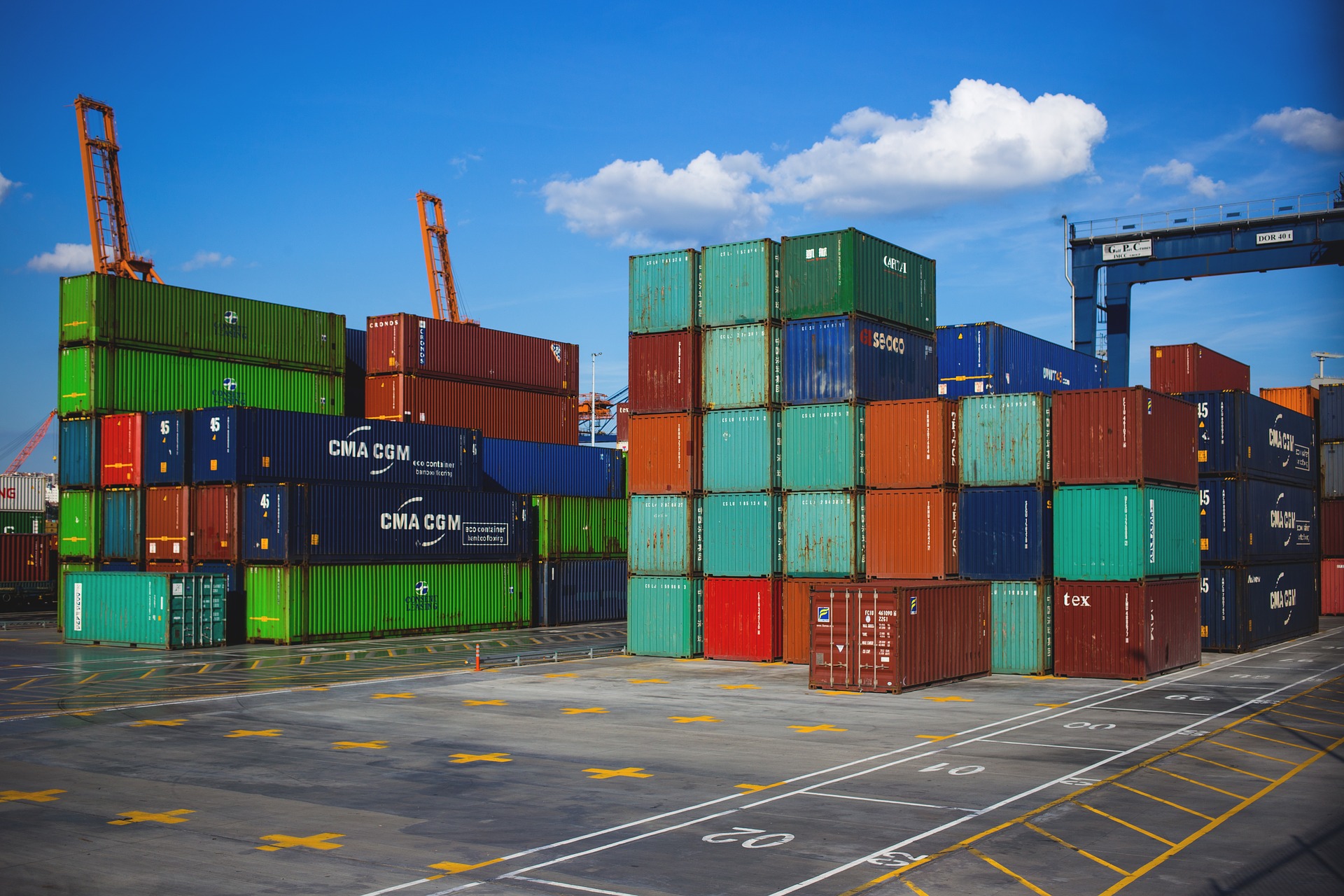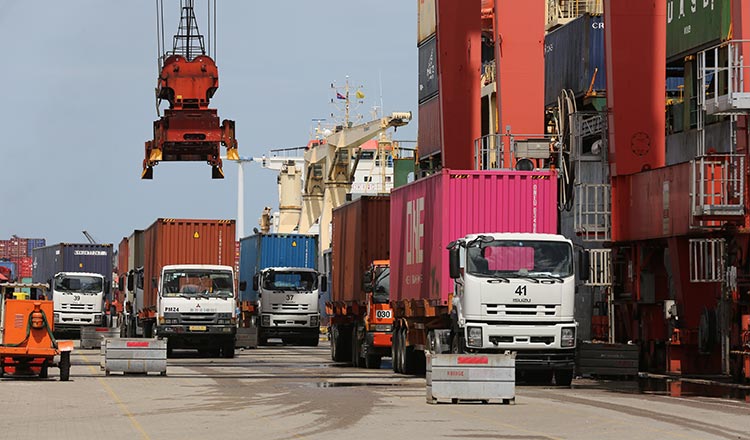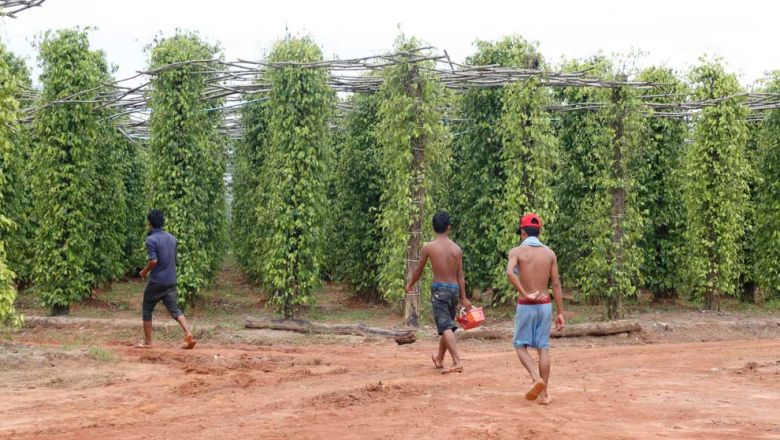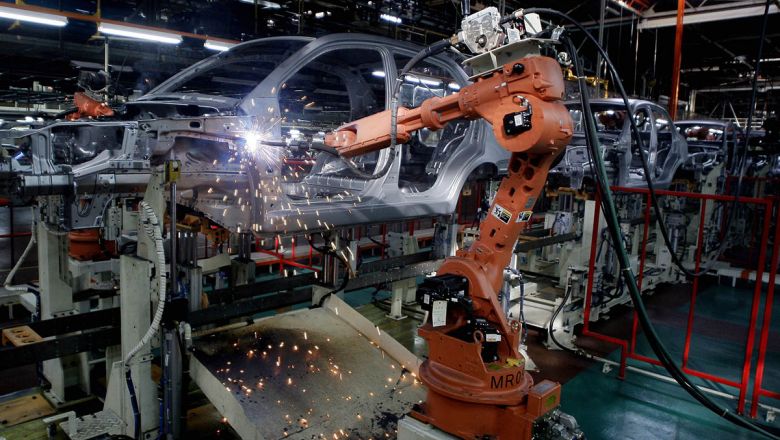BANGKOK -- The favorite candidate site for Thailand's envisioned new gateway to the Indian Ocean is a small peninsula jutting out into the Andaman Sea.
The Ao Ang district in Ranong Province in southwestern Thailand, located about 30 km south of the province's urban area, is mostly covered with primeval forest and can be accessed only by sea. But the backwater district is now attracting a growing number of people as a candidate site for a new port, said a fisherman operating the boat the writer chartered at a nearby village. It took an hour to sail to the area near the site.
Ao Ang, which was not widely known even to local residents, started attracting attention after Thai Prime Minister Prayuth Chan-ocha in September 2020 ordered the Ministry of Transport to conduct a feasibility study on the construction of a "land bridge" across the Kra Isthmus to connect Chumphon Province, along the Gulf of Thailand on the eastern coast of the Malay Peninsula, to Ranong. The plan is to build ports for large cargo ships in the two southern provinces, linking them with railways, highways and oil pipelines.
The route would also be linked to other railways and highways in Thailand, including those under construction. Special economic zones would be built around the ports to lure foreign investment.
The government of Prayuth, who has been in power for seven and a half years, has been pushing a huge infrastructure project dubbed the Eastern Economic Corridor as the centerpiece of its economic agenda. The undertaking is aimed at turning the coastal industrial zone in eastern parts of the nation into a hub of high-value-added industries. In August 2018, the government came up with the Southern Economic Corridor initiative to capitalize on natural resources in southern Thailand, such as rubber and palm trees.
The land bridge project would be the main driver of infrastructure development in southern parts of the nation.
There is a commercial port in Ranong, but its seafloor is only 8 meters deep and its hinterland is narrow. Of six candidate sites being considered for the plan to build a new deep-water port in the province, Ao Ang is considered the favorite. The water is as deep as 16 meters and there is a vast tract of flat land behind it that is suitable to build a special economic zone.
"The port would offer a new maritime trade route linking Thailand to Japan, China and Vietnam in the east and to India, the Middle East and Europe in the west," said Pornsak Kaewthavor, head of the Ranong Chamber of Commerce. "Through integrated operations of the eastern and western ports as a transport node connecting the Pacific with the Indian Ocean, Thailand could become a trade hub like Singapore," he said.
There is a strong case for building a new transport route between Chumphon and Ranong because it would cross the Kra Isthmus, the narrowest part of the Malay Peninsula. The envisioned ports are only about 90 km apart.
Building a trade route cutting across the peninsula is an old idea but there is now a fresh wave of interest in this vision. There are two main approaches to the challenge.
One is digging a canal across the Malay Peninsula, an idea that has been around since the 17th century. Currently, a lobbying organization for retired military officers in southern Thailand is championing this approach. But it would be expensive, with an estimated construction cost of over $25 billion, and pose tough technological challenges. Since the surface of the Andaman Sea is about 3 meters higher than that of the Gulf of Thailand, multiple lock gates would need to be built to adjust water levels in the canal for ships to pass through. Moreover, the canal could not be very wide. Some critics say that artificially dividing the nation with a canal could violate the Thai constitution, which says "Thailand is one and indivisible Kingdom."
The other approach is building a land bridge. In the 1990s, the proposal was made to construct a large port at a location farther south of Ranong that could accommodate oil tankers, along with a pipeline to carry oil across the peninsula to a new petrochemical complex to be built on the east coast. But the proposal failed to materialize, as Thailand was engulfed in the Asian currency crisis in 1997. Later, the government of Prime Minister Thaksin Shinawatra considered the project but soon abandoned the idea.
The newly envisioned land bridge is estimated to cost around $3 billion, a tenth of the canal's price tag. Transport Minister Saksayam Chidchob has stressed the economic benefits of the new trade route, saying it would pave the way for Thailand to "become Southeast Asia's 'economic tiger cub' again." But many questions remain about its economic viability.
The principal selling point of the proposed land bridge is that it would shorten the distance that cargo ships carrying goods between East Asia and the Middle East and Europe have to travel, by letting them bypass the Malacca Strait.
A total of 85,000 ships passed through the strait in 2018, according to the Thai Transport Ministry. The number is projected to grow to up to 128,000 within 10 years, possibly surpassing the estimated limit of 122,000 vessels for the key trade route. Excessive congestion would increase the risks of delays and collisions.
The land bridge would not just help avoid such risks but also shorten the travel distance by 1,200 km and cut the time by about two days. But using the land bridge would involve transshipping cargo from ships to trains or trucks and then onto ships again.
Some experts are skeptical about the economics of the land bridge.
"The approach would not make sense unless smooth and swift transshipping between ships and land vehicles is guaranteed," said an executive at a Japanese shipping company. "One or two days can be easily wasted through delays. The land bridge wouldn't be cost-competitive against the Malacca route, which does not involve transshipping."
Suwat Nualkaw, associate dean for administration at the College of Logistics and Supply Chain at Suan Sunandha Rajabhat University, argues that both routes could be used, each for different types of cargo. "Which is used would be determined according to such factors as the added value of the cargo as well as the cost, time and reliability of transportation," he said. "The Malacca Strait could be used to transport rice and cement, for instance, and the land bridge for electronic parts. I think there is an 80% chance of the project materializing."
The project to construct a new transportation route connecting the Indian Ocean with the Pacific inevitably has strategic ramifications for the bitter rivalry between the U.S. and China over influence in Asia.
Immediately after the feasibility study for the project began in September 2020, some officials at the U.S. Embassy in Thailand visited Ranong and warned local business leaders that China's involvement would not bring economic benefits to the local communities.
The following year, executives at the state-owned company China Railway Construction traveled to the Thai province. China is working with the Thai government in a project to build high-speed train lines connecting Bangkok with northeastern and eastern parts of Thailand. Local officials who met the executives said the Chinese showed strong interest in taking part in the land bridge project.
China is seeking to build a pan-Asian railway network that runs through the Indochina Peninsula as an alternative route to sea lanes passing through the Malacca Strait and the South China Sea, in case a security crisis occurs in those places. The land bridge could serve as an important segment of such a route.
The U.S. fears that the new large Thai ports planned for the project would come under the influence of Beijing, following the fate of Sri Lanka's port in Hambantota, Pakistan's Gwadar Port and Myanmar's port in Kyaukphyu. Washington is concerned that China will use these facilities for military purposes.
The tug of war between the U.S. and China over the land bridge project shows the difficulties -- as well as the opportunities -- Japan faces in committing itself in infrastructure projects in Thailand.
When Bangkok embarked on the Southern Economic Corridor initiative in August 2018, a senior official of Japan's Ministry of Economy, Trade and Industry proposed to the Thai government to carry out the project through cooperation between Japan and China.
The administration of then-Prime Minister Shinzo Abe was exploring ways to pursue joint infrastructure projects with Beijing's Belt and Road Initiative. The Abe administration was racing to find high-profile candidates prior to his scheduled meeting with Chinese President Xi Jinping in October that year. But nothing concrete emerged from Tokyo's proposal to Bangkok, as there were still many conflicting visions for the Southern Economic Corridor. As the confrontation between the U.S. and China intensified, the momentum for the joint initiative was lost.
A senior Japanese government official admits that currently there is no strong interest in the land bridge in either the public or the private sector. For Japanese companies with operations in eastern parts of Thailand, however, it is vital to secure reliable transportation access to the Indian Ocean.
Japan once saw great potential in Myanmar's Dawei, 300 km west of Bangkok, and worked hard to reach an agreement with Myanmar and Thailand on joint development of the region in 2015. But the project stagnated, and last year's military coup in Myanmar dashed hopes for any progress.
Japan's interest in Dawei was based on its strategic goal of preventing China from making inroads into the region, and Ranong, on the west coast along the Andaman Sea, could serve as an ideal substitute for Dawei. In fact, many pundits in Thailand think Japan could play a major role in the land bridge project.
"Given the need to strike a balance between the U.S. and China, Japan could be the ideal partner" for the land bridge project, said Suwat of Suan Sunandha Rajabhat University.
But the clock is ticking. The Thai government is expected to complete its feasibility study on the project by 2023.
source : NIKKIE Asia
























